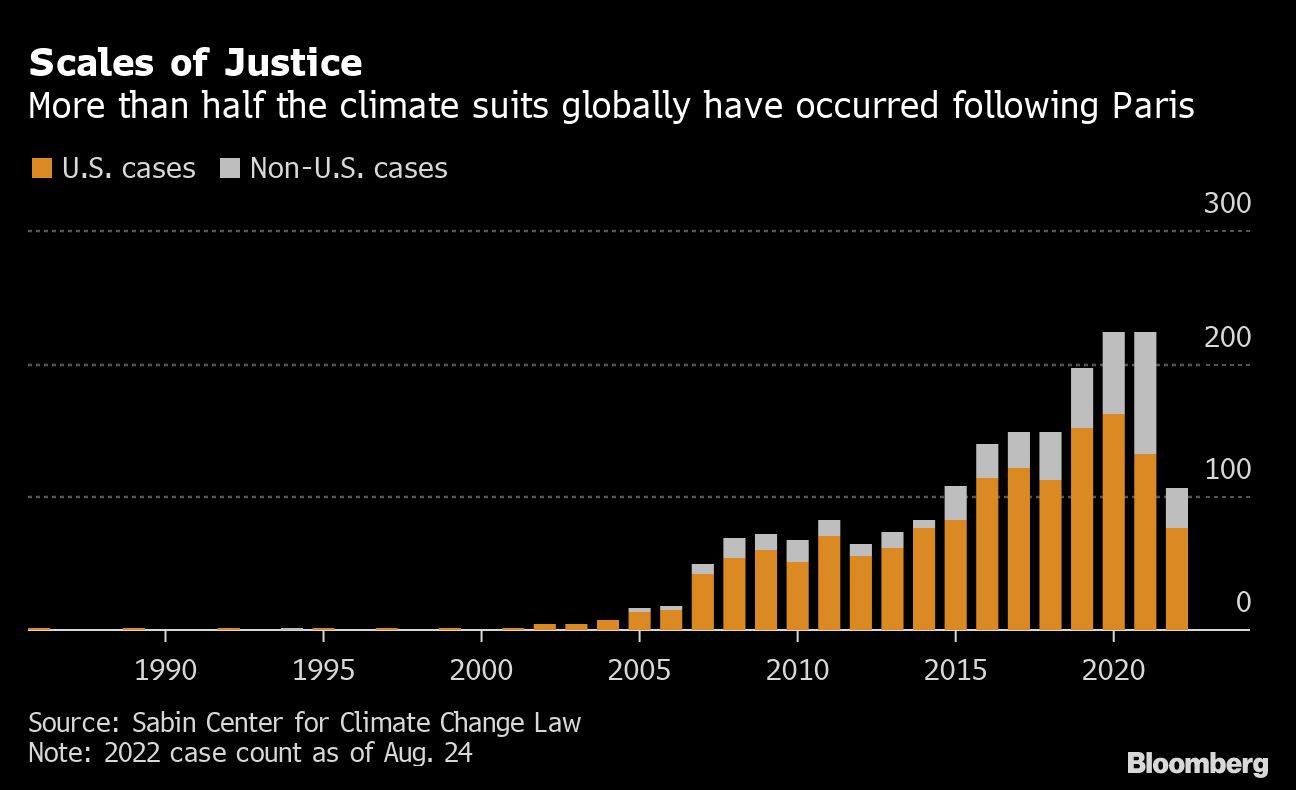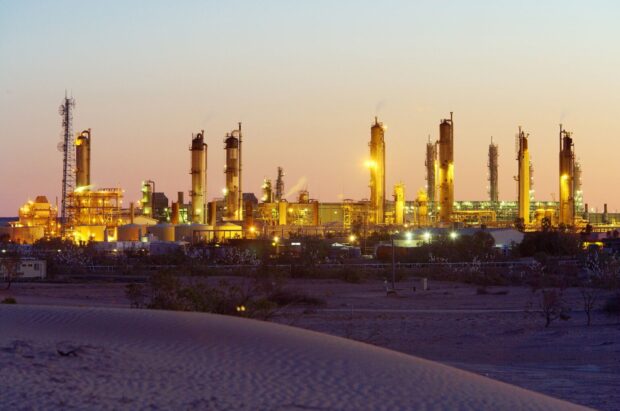Activists mounting one of the world’s first legal challenges over corporate greenwashing have expanded a case against gas producer Santos Ltd., raising fresh allegations about the company’s climate plans.
A suit filed against the oil and gas producer is the first time a major company has been challenged over the detail of emissions reduction targets, according to the Australasian Centre for Corporate Responsibility, the shareholder activist group that launched the action last year.
Details gleaned through the legal discovery process, which gave the ACCR access to additional internal Santos documents, have raised fresh questions about company’s pledges to use carbon capture technology and the blending of natural gas with hydrogen to achieve climate targets, the group’s Executive Director Brynn O’Brien said in a statement.
Santos declined to comment.
Adelaide-based Santos has pledged to reduce scope 1 and 2 pollution by 30 percent by 2030 and to zero out those emissions by 2040, according to a March climate change report. The ACCR case, filed in Australia’s Federal Court, relates to a previous briefing and documents outlining company strategy.
Those proposals relied heavily on carbon capture technology that remains unproven and overstated the potential to curb emissions by mixing hydrogen into the natural gas network, the ACCR alleges. “Documents produced by Santos have heightened our concerns that these plans lacked sufficient detail to be put into the market,” O’Brien said.
The case is being closely watched as a major test of greenwashing—dubious claims made by companies or institutions over their planned climate actions or environmental responsibility. Activists are increasingly trying to hold large polluters to account in an attempt to mitigate the worst impacts of planetary warming. Royal Dutch Shell Plc was ordered by a Dutch court last year to slash emissions more than twice as fast as originally planned.

Accurate information about the steps companies plan to take to curb emissions is crucial, Zoe Bush, a senior solicitor at the Environmental Defenders Office, which is acting for the ACCR, said in the statement. Details that are misleading could “leave investors vulnerable to major losses and potentially unfairly skew the market away from companies that are acting responsibly,” she said.
Australia is the most litigious nation after the U.S. as activists try to force change in the major fossil fuels producer, widely regarded as a laggard on climate issues. Results so far have been mixed. While some companies have settled lawsuits for poor risk disclosure, the Federal Court this year overturned a ruling that Canberra has a duty of care to protect its youth from climate change, claiming it was an issue of high public policy and not one for courts.
–With assistance from James Fernyhough
Photograph: The Santos Ltd. operations are seen in Moomba, South Australia. Photo credit: Bloomberg





















 RLI Inks 30th Straight Full-Year Underwriting Profit
RLI Inks 30th Straight Full-Year Underwriting Profit  Lessons From 25 Years Leading Accident & Health at Crum & Forster
Lessons From 25 Years Leading Accident & Health at Crum & Forster  Insurance Groundhogs Warming Up to Market Changes
Insurance Groundhogs Warming Up to Market Changes  Earnings Wrap: With AI-First Mindset, ‘Sky Is the Limit’ at The Hartford
Earnings Wrap: With AI-First Mindset, ‘Sky Is the Limit’ at The Hartford 